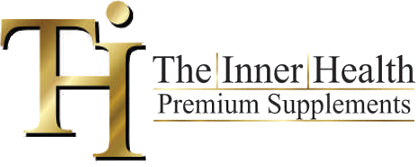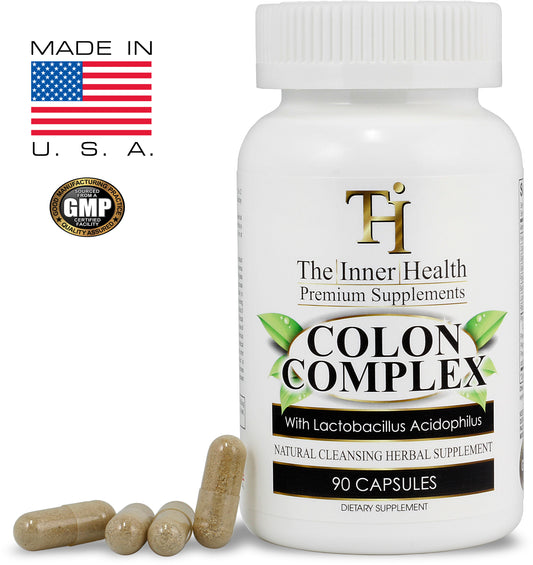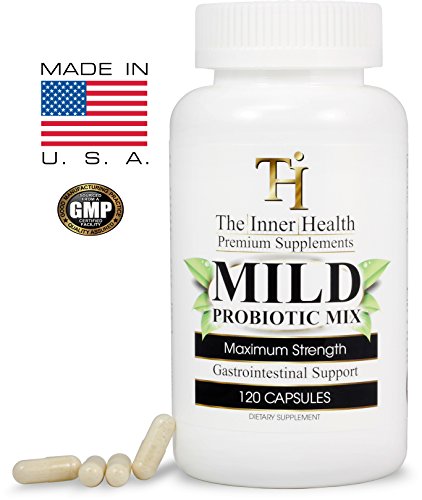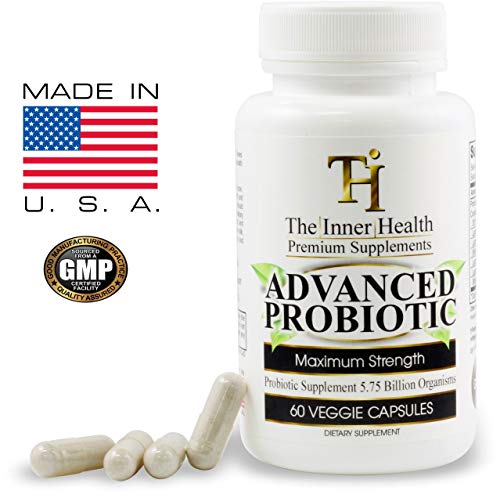Vitamin B12, an essential component for our health, is a water-soluble vitamin crucial for the proper formation of red blood cells, neurological functions, and DNA synthesis. As our body cannot produce this nutrient on its own, it must be obtained through diet or supplements. Vitamin B12 is found in meat, fish, eggs, and dairy products, which is important to consider when opting for a plant-based diet. What are the best sources of vitamin B12?
Why is Vitamin B12 so important? Also known as cobalamin, vitamin B12 plays a vital role in the formation of red blood cells, cellular metabolism, nerve functioning, and DNA production, the molecules within cells that carry genetic information.
Like all B-group vitamins, vitamin B12 is water-soluble, meaning it can dissolve in water and travel in the bloodstream. The body can store vitamin B12 for up to 4 years and can excrete excess or unwanted vitamin B12 in urine.
Sources of vitamin B12 include meat, eggs, and dairy products. It is also added to some foods, such as fortified breakfast cereals, and is available as an oral supplement. Moreover, vitamin B12 injections or nasal sprays can be prescribed to treat vitamin B12 deficiency.
Deficiency can occur when vitamin B12 levels become too low to meet the body's needs. This can lead to various symptoms and even irreversible neurological problems if not treated.
Vegetarians or vegans are considered at risk for this deficiency, as plant foods do not contain vitamin B12. Older adults and individuals with gastrointestinal conditions affecting nutrient absorption are also susceptible to vitamin B12 deficiency.
Untreated vitamin B12 deficiency can lead to anemia, fatigue, muscle weakness, intestinal problems, nerve damage, and mood disturbances.
The recommended daily intake of vitamin B12 for adults is 2.4 micrograms, and for pregnant and breastfeeding women, the requirement ranges from 2.6 to 2.8 micrograms.
Where is Vitamin B12 found: liver and kidneys One of the best sources of vitamin B12 is the liver and kidneys, especially lamb. It is estimated that just 30g of lamb's liver provides 3571% of the daily value (DV) of vitamin B12. Researchers emphasize that lamb's liver is a better choice than beef or veal liver, although these are also worth adding to the diet, as well as lamb, veal, and beef kidneys.
Lamb liver is also very rich in copper, selenium, and vitamins A and B2. Consuming liver can help prevent pernicious anemia, as it contains not only vitamin B12 but also iron and folate. These three nutrients can aid in treating anemia.
Where is Vitamin B12 found: beef Another excellent source of vitamin B12 is beef. It is believed that one steak (about 190g) provides 467% of the daily requirement for vitamin B12. Additionally, the same amount of steak contains reasonable amounts of vitamins B2, B3, and B6, and over 100% of the daily doses of selenium and zinc. Moreover, beef is one of the best animal sources of protein.
It is believed that grass-fed beef has higher levels of vitamin A precursors, vitamin E, and cancer-fighting antioxidants compared to grain-fed beef. For high vitamin B12 levels, it is recommended to choose lean cuts of meat and grill or bake them instead of frying to preserve the vitamin B12 content.
Where is Vitamin B12 found: mussels Mussels, small shellfish, are packed with nutrients. They not only have the highest concentration of vitamin B12 among all foods but are also filled with potassium (providing over 7,000% DV in just 190g). Mussels, especially whole mussels, also provide a large amount of iron, with almost 200% DV in a 100-gram serving.
Furthermore, a 2011 study published in "Natural Product Research" showed that mussels are a good source of antioxidants. Interestingly, broth from cooked mussels is also rich in vitamin B12.
Where is Vitamin B12 found: sardines Vitamin B12 is also found in sardines, small sea fish with soft bones. It is estimated that 150g of drained sardines provide 554% of the daily requirement for vitamin B12. Additionally, sardines are an excellent source of omega-3 fatty acids, which have been shown to provide numerous health benefits, such as reducing inflammation and improving heart health.
Sardines are typically sold canned in water, oil, or sauces, though they can also be purchased fresh. They are particularly nutritious because they contain large amounts of nearly every nutrient.
Where is Vitamin B12 found: tuna Tuna is a commonly eaten fish and an excellent source of nutrients, including protein, vitamins, and minerals. It contains high levels of vitamin B12, especially in the muscles just below the skin, known as dark muscles. It is estimated that a 100-gram serving of cooked tuna contains 453% of the daily dose of vitamin.
Tuna, like salmon and trout, is also a rich source of omega-3 fatty acids, including eicosapentaenoic acids (EPA) and docosahexaenoic acids (DHA), believed to improve mood. Additionally, tuna contains a good amount of lean protein, phosphorus, selenium, and vitamins A and B3.
Where is Vitamin B12 found: salmon Like trout, salmon is a rich source of protein and heart-healthy omega-3 fatty acids (salmon is well known for one of the highest concentrations of omega-3 fatty acids). It's also an excellent source of B-group vitamins.
It is estimated that 180g of cooked salmon can contain 208% of the daily dose of vitamin B12. The same portion can also provide 4123mg of omega-3 fatty acids. Salmon is also a very good choice for those looking for a great source of protein, as there are as much as 40g of this nutrient in a 180g fillet.
Where is Vitamin B12 found: milk and dairy products Milk and other dairy products, such as yogurt and cheese, are excellent sources of protein and several vitamins and minerals, including vitamin B12. For example, 240ml of whole milk provides 46% of the daily dose of vitamin B12. Meanwhile, 22g of Swiss cheese contains about 28% of the daily dose of this vitamin.
Speaking of cheese, feta cheese not only provides a good source of vitamin B12 but also many other nutrients, such as riboflavin (vitamin B2) and calcium. Researchers believe that if we can find feta cheese made from raw sheep/goat milk, the nutritional and health benefits are even better.
The high content of riboflavin is excellent for people suffering from headaches, as studies have shown that riboflavin can significantly reduce the frequency of headaches, including migraines.
Full-fat natural yogurt is also rich in vitamin B12. It has even been shown, in studies such as those published in 2006 in the "International Journal of Food Sciences and Nutrition", to help improve the vitamin B12 status in people with vitamin B12 deficiency.
Interestingly, other studies (e.g., those published in 2015 in "Nutrition Reviews") have shown that the body absorbs vitamin B12 from milk and dairy products better than vitamin B12 from beef, fish, or eggs.
Cottage cheese is also rich in vitamin B12, as well as protein and calcium.
Where vitamin B12 is found: Eggs Vitamin B12 can also be found in eggs, which are an excellent source of complete protein and other B vitamins. It is assumed that 100 grams of eggs provide about 46% of the daily dose of vitamin B12 and about 39% of the daily dose of vitamin B2. Moreover, researchers believe that egg yolks have higher levels of vitamin B12 than egg whites.
According to research published in 2016 in the "Journal of Nutritional Science and Vitaminology," vitamin B12 in egg yolks is also more readily absorbed, which is why it is recommended to consume whole eggs instead of just the whites.
Eggs also contain choline, which is essential for the proper functioning of our liver. Studies have shown a correlation between low choline levels and liver dysfunction and possibly a higher risk of cancer.
Where vitamin B12 is found: Fortified yeast What about individuals on a plant-based diet? Do they have no sources of vitamin B12? Fortified food comes to the rescue for such individuals, enriching their diet with various vitamins as well as macro- and micronutrients. For example, fortified food helps increase vitamin B levels in people who do not consume animal products, and some plant foods are naturally rich in nutrients.
One such product is nutritional yeast, which is also a good vegan source of protein, vitamins, and minerals. It is a species of yeast specially cultivated for use as food, not as a leavening agent in bread and beer.
Nutritional yeast does not naturally contain vitamin B12. However, it is commonly fortified, making it an excellent source of this nutrient. It is estimated that 15 grams of nutritional yeast can provide up to 733% of the daily dose of vitamin B12.
Another study published in 2004 in "The American Journal of Clinical Nutrition" showed that participants consuming 240 ml of fortified cereal flakes containing 4.8 mcg of vitamin B12 daily for 14 weeks had significantly higher levels of vitamin B12.
However, it should be added that fortified food, such as cereal flakes, is not considered a part of a full-value, healthy diet because it contains refined and processed grains, although it is a good choice for individuals following a vegan or vegetarian diet who want to ensure an adequate level of vitamin B12.
Experts recommend that if we decide to use fortified cereal flakes to increase vitamin B12 intake, we should make sure to choose a product low in sugar and rich in fiber.
Where Vitamin B12 Is Found: Cereal Flakes Another excellent source of vitamin B12 for vegetarians and vegans is specially fortified cereal flakes. Fortification, as mentioned before, is the process of adding nutrients that were not originally in the food. In addition to vitamin B12 itself, these flakes may contain vitamin B6 and significant amounts of vitamin A, folic acid, and iron.
Studies, such as those published in 2016 in the scientific journal "Nutrition Journal," show that daily consumption of fortified grains helps increase vitamin B12 levels. Another study published in 2004 in "The American Journal of Clinical Nutrition" found that participants consuming 240 ml of fortified cereal flakes containing 4.8 mcg of vitamin B12 daily for 14 weeks had significantly higher levels of vitamin B12.
However, it should be noted that fortified foods, such as cereal flakes, are not considered part of a full-value, healthy diet because they contain refined and processed grains, although they are a good choice for people following a vegan or vegetarian diet who want to ensure an adequate level of vitamin B12.
Experts recommend that if we decide to use fortified cereal flakes to increase vitamin B12 intake, we should ensure that we choose a product low in sugar and rich in fiber.
Where Vitamin B12 Is Found: Supplements However, some people have problems absorbing vitamin B12 from food and may need supplements of this vitamin. Vitamin B12 supplements are recommended for people at risk of vitamin B12 deficiency, including older adults, pregnant or breastfeeding women, vegetarians and vegans, people with intestinal problems, and those who have had stomach surgery.
Vitamin B12 supplements are available in many forms, including oral or nasal spray. However, oral supplements may not help in many cases of deficiencies. In such circumstances, a doctor may recommend vitamin B12 injections.
Studies such as those published in 2013 in the "Ontario Health Technology Assessment Series" showed that vitamin B12 taken orally and intramuscularly is equally effective in restoring vitamin B12 levels in people with its deficiency. Another study published in 2011 in the scientific magazine "Clinical Therapeutics" showed that individuals with low vitamin B12 levels replenished their stores after 90 days of taking supplements or injections of this vitamin.
Vitamin B12 injections are especially recommended for individuals with pernicious anemia or problems with poor absorption and severe vitamin B12 deficiency. These injections consist of vitamin B12 in the form of cyanocobalamin or hydroxocobalamin. They are typically given into the muscle every other day for 2 weeks or until symptoms improve. The continuation of treatment depends on whether the cause of the deficiency is diet or accompanying neurological problems.





